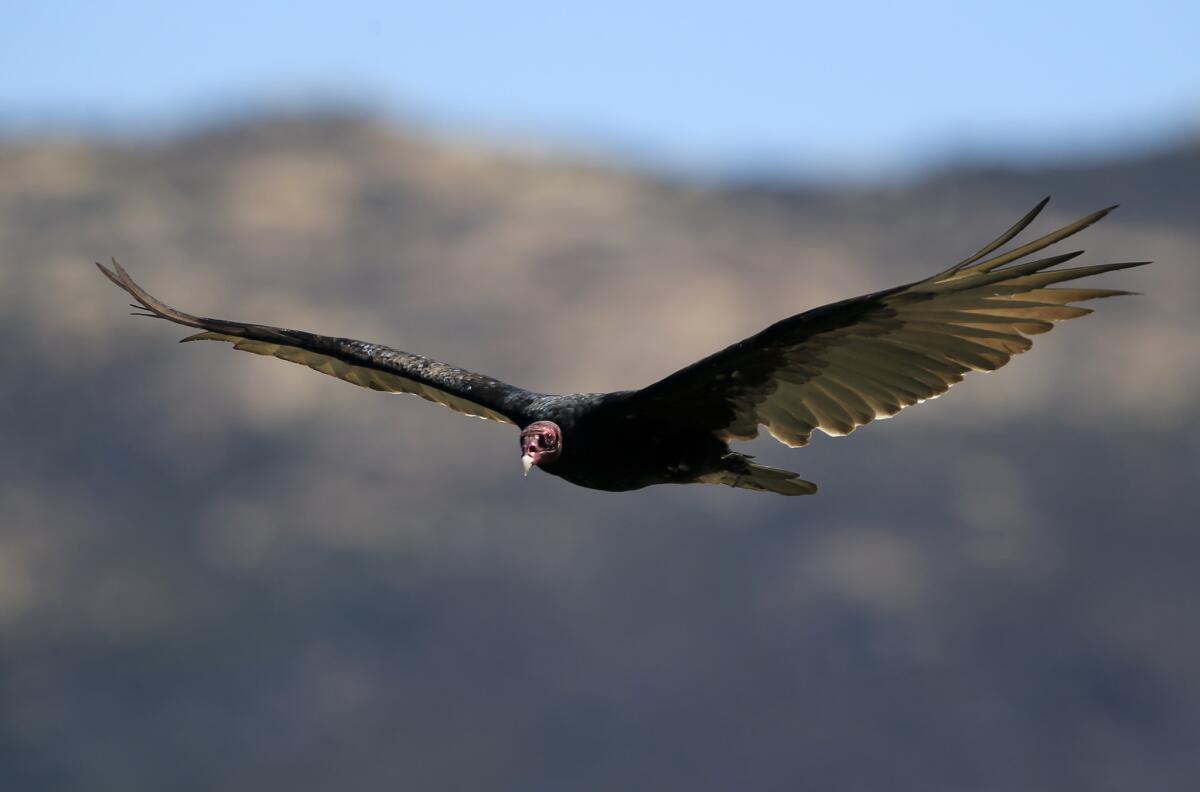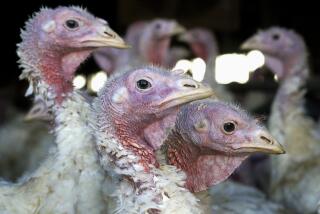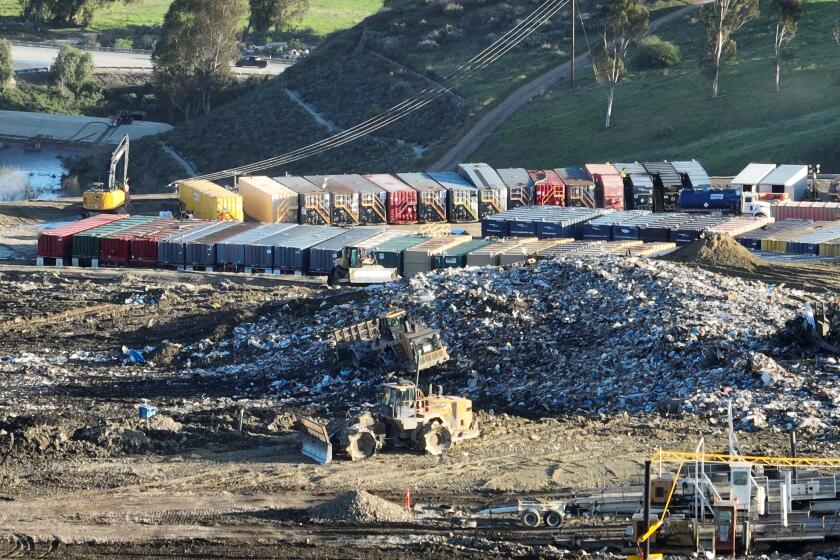Rotting food is no problem for the turkey vulture, thanks to its toxic gut

- Share via
Turkey vultures are amazing animals, and, lets face it, pretty disgusting.
They pee on their own legs. They frequently projectile-vomit. They feast on rotten meat teaming with pathogens. And if an animal’s hide is too thick, a turkey vulutre will stick its bald red head right into the dead carcass’s anus.
Now, a new study suggests that the microbial population of the vulture’s gut is composed primarily of two bacteria, both of which are toxic to vertebrates.
“They are really neat birds, once you get all over the gross stuff,” said Keith Bildstein, director of conservation science at Hawk Mountain in Kempton, Pa., who was not involved in the study.
When a vulture encounters a dead deer, cow or bird, it is also encountering millions of bacteria that are busily secreting chemical poisons in the process of digesting the animal’s remains, explains Bildstein. This is an effective strategy for the bacteria -- it allows them to eat the animal and keep other organisms at bay that might also be interested in the meat.
But the vulture has developed several adaptations to circumvent the bacteria’s best efforts. For example, the acid in a vulture’s stomach is 10 to 100 times stronger than the acid in most vertebrates’ stomachs. Scientists believe this helps vultures neutralize at least some of the toxins in the decaying meat.
Urinating on their legs may be another way that vultures protect themselves from their dicey dietary environment. The uric acid may act as an antiseptic, keeping the bacteria teeming in an animal carcass from entering any cuts or scratches on the vulture’s legs.
And this week, we learn that an unusual mix of microorganisms in the vulture’s gut may be another way the animal can sustain its unlikely diet.
In a study in Tuesday’s Nature Communications, scientists based in Denmark analyzed the bacteria in the guts of 50 black vultures and turkey vultures collected in Nashville. They found high levels of Clostridia, which the researchers say causes severe food poisoning in both humans and chickens, and Fusobacteria, which is found in negligible amounts in human guts and has been shown to promote colon cancer.
There were few other types of bacteria, which suggests the bird’s high stomach acidity neutralizes most of the dangers found in its unsavory food before it gets to the animal’s large and small intestines.
Bildstein, who has studied turkey vultures for more than a decade, said the study was smart science.
“What they have uncovered is a symbiotic relationship in which these microbes that are normally toxic to vertebrates are being used by turkey vultures and black vultures to aid in digestion,” said Bildstein.
But he wasn’t entirely surprised by the findings either.
“It basically confirmed something we’ve thought for a long time,” he said, “that vultures have iron-plated digestion tracks.”
After all, with their diet, they need them!
Science rules! Follow me @DeborahNetburn and “like” Los Angeles Times Science & Health on Facebook.





